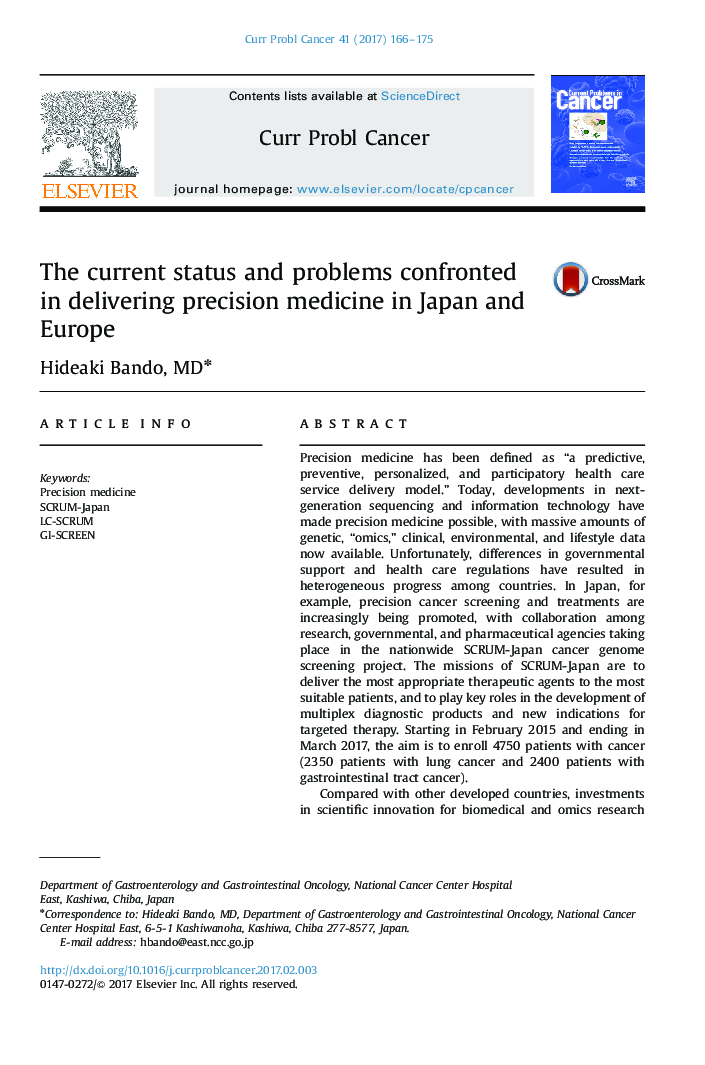| Article ID | Journal | Published Year | Pages | File Type |
|---|---|---|---|---|
| 5664201 | Current Problems in Cancer | 2017 | 10 Pages |
Precision medicine has been defined as “a predictive, preventive, personalized, and participatory health care service delivery model.” Today, developments in next-generation sequencing and information technology have made precision medicine possible, with massive amounts of genetic, “omics,” clinical, environmental, and lifestyle data now available. Unfortunately, differences in governmental support and health care regulations have resulted in heterogeneous progress among countries. In Japan, for example, precision cancer screening and treatments are increasingly being promoted, with collaboration among research, governmental, and pharmaceutical agencies taking place in the nationwide SCRUM-Japan cancer genome screening project. The missions of SCRUM-Japan are to deliver the most appropriate therapeutic agents to the most suitable patients, and to play key roles in the development of multiplex diagnostic products and new indications for targeted therapy. Starting in February 2015 and ending in March 2017, the aim is to enroll 4750 patients with cancer (2350 patients with lung cancer and 2400 patients with gastrointestinal tract cancer).Compared with other developed countries, investments in scientific innovation for biomedical and omics research are matched or even surpassed in Europe, but regulatory differences in each countries are a major hurdle to rapid implementation. Although market approval for pharmaceuticals is centralized through the European Medicines Agency, access to health care is heterogeneously regulated at national levels, which undermines the consistency, comparability, and quality of precision medicine for cancer patients in Europe. In this review, we focus on the current progress of precision medicine in Japan and Europe, and clarify the differences in progress and the hurdles faced moving forward.
